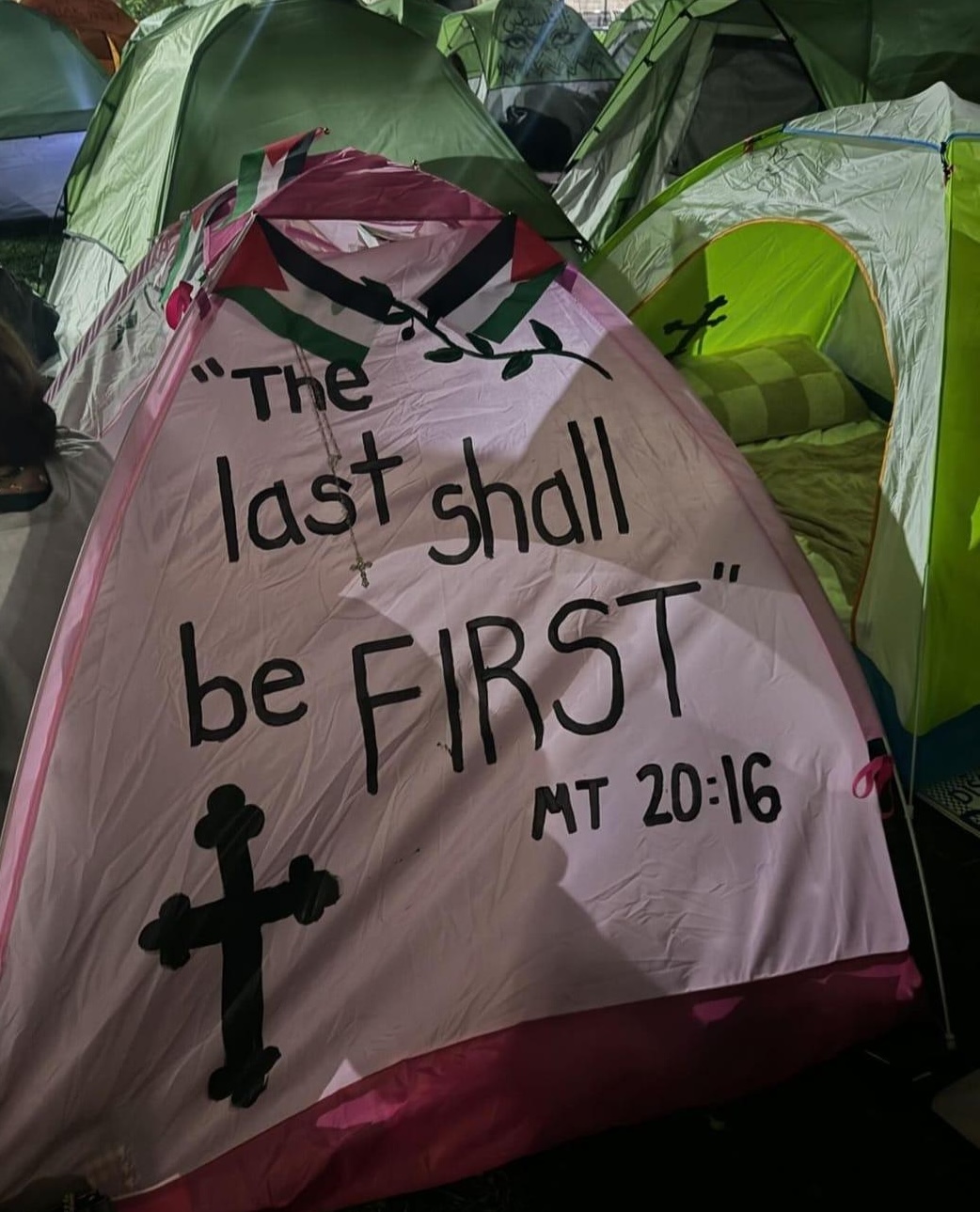Rising Up: An Ascension Reflection
Reading AudaciouslyAmy L. Dalton
Published 10 May 2024

The account of Jesus’ Ascension in Acts 1:6-11 (1) could be seen as among the most “pie in the sky” sections of Christian scripture. Just when everyone has come together in one place, Jesus is suddenly and without explanation swept up to the sky and into a cloud. What? What use does this story have for those organizing for justice and renewal on earth?
And yet, in an apparent contradiction, “two men in white robes” show up as this is happening and chide the disciples for fixing their attention on the sky: “Men of Galilee, why do you stand looking up toward heaven? This Jesus, who has been taken up from you into heaven, will come in the same way as you saw him go into heaven.”
For these intercessors, the fact that Jesus rose up above the earth and all its cycles of trauma and confusion did not mean that the stance of “gazing up toward heaven” is appropriate for a Christian. Their intent was to correct this error.
Their statement about how Jesus will return has traditionally been understood that Jesus will return on a cloud, since he ascended on a cloud. But this understanding does not explain why the two men needed to chide the disciples for standing and staring at the sky. It WOULD be rational to stare at the sky if indeed Jesus was going to return on a cloud, period, end of story. If this was the point of the exchange, we should all just become storm watchers!
But I think the meaning of their statement is more subtle. I think it means that Jesus will return in a spirit of rising, or lifting up. Or, put otherwise, amidst uprising.
This is a lot to assert, now, in this time when a broad coalition of conservatives and liberals are bashing the student uprisings for Gaza across the country as dangerous seeds of terrorism. And, indeed, so deep is our distrust of uprising, that we consider the Arabic word for it – “intifada” – to be nothing more than a bad word, signifying all forms of evil. This bias against uprising resonates with and is reinforced by how most commentators understand the Bible to be primarily critical of revolt and uprising, citing passages like Romans 13:1-5 and 1 Samuel 15:23.
But in reality the Bible is full of stories of uprisings portrayed as part of God’s plan for the liberation of all – from the revolt coordinated by Deborah and Barak in Judges 5, to the story of the slave Exodus from Egypt, to the songs of Hannah and Mary. One characteristic of all of these passages is that the political rising is linked to a rising up of the human spirit, or soul. And folks who have been in the fray as organizing quickens into movement building know that these are times of palpable renewal of enthusiasm for and faith in the most admirable, precious and fragile aspects of human nature. As the Kairos Center’s sign-on letter from faith leaders asserts, “In reality, the [student] encampment has been overwhelmingly grounded in principles of non-violence, intercultural understanding, and community care, principles which reflect the participant’s wider call for peace.” (2)
At a recent Palestinian solidarity vigil led by Rockland for Ceasefire (3), an organizer paused while leading chants from the podium. Kapwa (Maka Dang Dang) had her fist raised, as did many of those gathered. “Do you know what this is?” she asked, pointing to her raised fist. She continued (paraphrase): “This is the size of our hearts! This fist represents my heart! Because we are here for the sake of love! So, let us lift up our hearts!!!” In response to her words, I witnessed fists, voices and tears swell in equal proportion around me. Immediately, I thought of the line which is part of our communion liturgy: “We lift up our hearts; we lift them up to the Lord!” Though the organizer was not trying to conduct a Christian ceremony, I knew we were embodying the liturgy, that day.
And this is what Jesus wants us to do: embody and aid the rising up of the human spirit. Support and encourage the soul taking its place as the strongest part of the human personality (4). And that happens powerfully when we come together to stand for each other’s dignity and call for justice and mercy for all.
Focusing on this aspect of Jesus’ ascension allows us to understand why the two intercessors wanted to redirect the disciples’ attention. Don’t stand around gawking at the sky! Rather, turn and return, and attend to where you are. Do the work of lifting up – lifting yourselves, those around you, and all the spaces of worldly confusion that you are in contact with – because it is in the space created by this uplifting work that Jesus will find room to return.
1 - Acts 1:6-11 – https://bible.oremus.org/?ql=582288114
2 - Faith leaders support for encampments at Columbia University, CUNY, and more
3 - Rockland for Ceasefire: https://www.instagram.com/rockland4ceasefire/
4 - Bob Emerick, Soul Affirmation (2010)
Image from the Rutgers encampment, taken by Friends of Sabeel North America FOSNA: https://www.instagram.com/fosnalive
